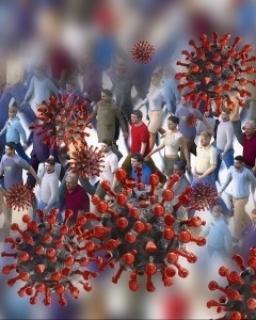
Abstract
In order to monitor the impacts of COVID-19, the ANU Centre for Social Research and Methods has established a COVID-19 impact monitoring survey program. The first wave of data collection occurred in April 2020, during the peak of the first wave of infections in Australia. This was followed by a survey in May 2020 as restrictions began to ease across the country, and infection rates started to decline in most States and Territories. The third wave of data collection occurred in August 2020, a time when infection rates in Victoria (and Melbourne in particular) were at their highest yet observed, Sydney continued to have a small number of new infections each day, and the rest of the country was, for the most part, experiencing zero confirmed cases. If the first two waves of data collection were at a time of ‘we are all in this together’, our third wave of data collection occurred when jurisdictions were experiencing significant divergence in terms of severity of lockdown, other policy interventions, and infection/mortality rates. The aim of this paper is to update the national-level trends in wellbeing outcomes using the most recently available data, as well as provide an initial analysis of divergence of outcomes within Australia.
Data collected using Life in AustraliaTM is still the only longitudinal survey of a large, representative sample of Australians with information from the same individuals prior to and during the Coronavirus pandemic. We show that anxiety and worry due to COVID-19 have increased since their low in May 2020, and measures of subjective wellbeing and psychological distress have worsened. Hours worked have increased across Australia since May 2020, but those in employment are more worried about losing their job than they were in May 2020. We find a relative worsening in outcomes for Victoria compared to the rest of Australia between May 2020 and August for six key outcomes in particular: psychological distress; loneliness; life satisfaction; satisfaction with direction of country; expected likelihood of being infected by COVID-19; and hours worked.
DOI or Web link
https://content.cass.anu.edu.au/10.26193/ZFGFNEFile attachments
| Attachment | Size |
|---|---|
| Tracking_wellbeing_outcomes_during_the_COVID-19_pandemic_February_to_August_2020.pdf(1.6 MB) | 1.6 MB |